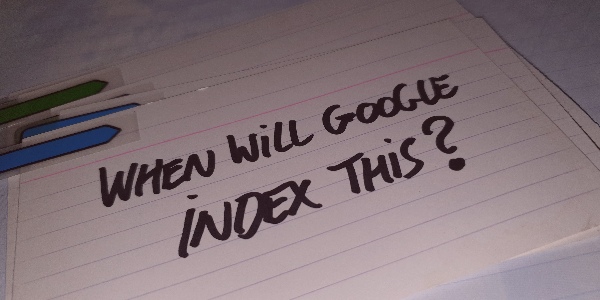What Are The Benefits Of Having Your Own Website?
I’ve created this website in order to help my readers build a website of their own. In turn, I’ll benefit from the attention (traffic) my website gets, as I’ll be able to monetize it.
What are the benefits of having your own website?
The benefits of having a website depends on your reason(s) for creating it. Creating a website opens up all kinds of opportunities, both on a personal and business level. The main benefits are: 24/7 availability, credibility, freedom to express yourself, and creating value.
And these are just a few of the benefits of owning a personal or business website. There are many more, and some of them might even surprise you.
Benefits of owning a website for your business
There are many different ways for using a website to your advantage. If you’re not sure if you should create a website for your business, this section might give you the last push. Though if you aren’t interested in monetizing your website, skip to this section on the benefits of owning a personal website.
Great! You’ve decided to continue reading. I’m assuming you’re an (aspiring) business owner wondering how a website can benefit your business. The benefits I’ll be sharing, will help you make educated decisions. As there are also some disadvantages you should be aware of.
As there is so much to tell, I’ve added a table of contents below. So it will be easier to find the information you’re looking for.
24/7 availability
Creating a website for your business, can be a great investment. Your website will be an extension of your business, allowing it to break physical boundaries. As you’ll be able to interact with your (potential) customers at any time and place.
Your website will be working for you 24/7, never gets tired or sick, and doesn’t need a lunch break. Best of all, it will cost you next to nothing compared to hiring an actual employee. From a financial perspective, it’s a no brainer investment.
This 24/7 availability, benefits both you and your (potential) customers. Though, there’s also a flipside to this coin. If you’re creating a website as a means to interact with your customers, you’ll also have to maintain these interactions.
You’ll need to manage your (potential) customer’s expectations. In today’s economy people have grown accustomed to instant gratification. They expect their questions to be answered in a timely manner. Which means, you’ll have to make time to reply to all these inquiries.
Consistency will become increasingly important as your website grows. You might even need to hire an assistant to handle all this for you. Although this might sound like nice problem to have, you’ll still need to be prepared to take action on it.
Credibility
Nowadays people expect businesses to have a proper website. By proper, I mean a website which is up to date and viewable on all sorts of devices. If your website looks similar to one created in the nineties, there a high probability your business won’t be taken seriously.
On top of that, our attention span has drastically decreased over the last decades. As mentioned before, we have grown accustomed to instant gratification. Your (potential) customers expect a lightning fast website, which contains all the information they need.
Most businesses will benefit from having a website, as long as it meets current standards. Just be aware that creating a website isn’t a one off investment, you’ll also have to maintain it. In some cases the actual costs involved, even outway the benefits.
When I need loaf of bread, chances of me checking the bakery’s website are slim. Though before making a more substantial purchase, like a computer or vacation, I always compare prices on the internet. The higher the price, the more research I’m likely to do.
The return on investment (ROI) depends on many different factors. This is why it’s always a good idea to perform primary market research, before you dive into the world of websites.
Online Presence
Having a online presence means there’s a chance people will accidentally stumble upon your business. Yet, this shouldn’t be the main purpose for creating a website. As these kinds of odds are very slim, at best. Luckily there are some ways to increase these odds.
Getting eyeballs on your business’s website, can be achieved by using either organic or paid methods. One of the easiest ways of getting website traffic is by paying for ads. But, before you dive into the world of ads, you’ll need to know your Customer LifeTime Value (CLTV).
CLTV is the average profit a single customer generates for your business. If the costs for acquiring a new customer are higher than the CLTV, you’ll need to rethink your strategy. An alternative is to use organic methods for generating traffic.
Although advertising can be expensive, you should be aware that generating organic traffic isn’t free either. It will require an even more expensive resource; your time. You will not only have to create content, which attracts visitors to your website, you’ll also need to be patient.
It takes around 35 weeks for your content to get to 95% of its potential ranking. That’s a whopping eight months, before you know your content was good enough. And even then, there’s a chance your traffic will start to drop off over time.
The real benefit of having your own website, is having full control over it. Instead of creating an online presence on someone else’s platform, you’ll be creating an asset of your own. When a platform falls out of style or fades away over time, so will your investment.
When building an asset, you’re creating value for yourself and others.
Creating Value
I’ve worked in finance for almost two decades now. Damn, writing this really make me feel old. No worries, I still feel like I’m 25 years old (with 16 years of experience). As a financial manager, I know a thing or two about assets, liabilities and creating value.
Though after reading a book called “Rich Dad, Poor Dad”, my perception of these financial terms actually shifted. It revealed a simple definition of what assets actually are: Assets generate income, the higher its value, the more income it can potentially generate.
This definition is also spot on for when creating a website. I’m investing my time into creating blog posts for this website. And with each post I add, I’m actually increasing my website’s value. Not only for you as my reader, but also for potential buyers and advertisers.
Now, your goal for having a website might be completely different from mine. As there are many different types of websites you can create. Just keep in mind, your website should always add value for you, your customers and investors.
One of the ways a website can add value to your life, is when it can save you time. And this is exactly what the following section is all about.
Cutting Costs
Earlier on I pointed out a nice problem to have. You might need to hire an assistant, which takes care of your customer’s inquiries. Though there’s an alternative solution, which will not only solve this problem, but will also allow you to save time.
As you have full control over your website’s functionality and content. You could for instance add a Frequently Asked Questions (FAQ) page to your website. Adding such a page increases your reader’s user experience (UX) and will reduce the number of inquiries you get.
This is actually a true win-win situation. You’ll be able to save time on answering the same questions over and over again. And your readers will be able to instantly gratify their needs. As they’ll be able to find the answers they are looking for, by themselves.
Adding functionality to your website always involves an investment of resources. So it’s best to always calculate the ROI, before you actually implement a solution. On the flipside, don’t write off an idea if you think it’s going to be too expensive, numbers might change over time.
Some functionalities you can add to your website are:
- Appointment Scheduler
- Service Portal
- Webshop / Cart
I intentionally left out a “sales funnel”, as I wanted to put some emphasis on this topic. Sales funnels can actually be a great alternative for hiring a salesperson. It makes sense to add a sales funnel to your website, as this one-off investment could potentially add a new income stream.
Just be aware that not every product will be suited for a sales funnel. If you’re selling high end products with the steep price tag, a personal touch might be required to sway a potential customer. As nothing can replace the personal touch of a human salesperson.
If you’re selling low margin products, building a sales funnel for it might be overkill. As you’ll need to sacrifice enough resources to fully optimize your funnel. In short: You’ll have to decide if the potential ROI is high enough compared to hiring an account manager.
I’ve secretly already told you about this last method for cutting costs. Though you might not have caught it, as it isn’t very obvious.
Instead of displaying ads for a 3rd party, you could instead display ads of your own. If you’ve got your own product, displaying these ads on your website won’t cost you a penny. Hence you’ll be able to cut costs on advertising.
Business Expansion
As a business owner, you might run into certain physical boundaries. Having a website, means you’ll be able to break them down. Instead of only getting foot traffic, you’ll be able to get traffic from all around the world.
If you’re already successfully serving a local market, there no reason to stop there. You can easily expand your business to a national level, by creating a website. Or even expand globally by having your website translated in a more commonly used language.
Although English is still the most commonly spoken language in the world, don’t forget about the runner up; Mandarin. And what about Hindi or Spanish? These two languages combined exceed the number of English speaking people in the world.
Take this website for example, I’ve chosen to write my content in English instead of Dutch. Yes, there’s still enough room for a website like mine on the Dutch market. Though for me it made more sense to write for a bigger audience.
Side Note: Dutch is on the 52nd spot of most commonly spoken languages in the world.
Translating your website into different languages, can be beneficial. Though you’ll always have to keep your target market in mind. There could be cultural differences and you’ll need to be ready to take on an increased amount of competition as well.
This is actually the perfect segway to the next section. As I’ll be covering the benefits of having a website as a source of information about your target market.
Market Information
Having a lot of information on your target market, means you’ll have a competitive advantage. As you’ll be able to focus your resources towards the things which are most important to your customers. Having a website allows you to gather data about your website’s visitors.
You’ll have data on the number page visits and average time on page for your entire website. Allowing you to see which pages are getting the most attention. With this data in hand you’ll be able to interpret it and turn it into valuable information.
You’ll get a clear picture on what kind of topics you should be writing more about. It could even be worth creating an info product on certain topics which get most traffic. Which you could use as a lead magnet or an actual product to sell.
And this is just the tip of the iceberg. Instead of only gathering Google Analytics data, you could also add a questionnaire or a full blown survey to your website. Data is the equivalent of a goldmine for your business.
You’ll be able to segment your visitors and leads into different “buckets”. Based on the bucket the majority of your website visitors belong, you’ll know what focus on first. A great book to read on this topic is called “Ask” written by Ryan Levesque.
Having the right information about your target market, allows you to monetize both website traffic and your email list. I’ve already shared some of these monetization methods, though this topic deserves a section of its own.
Website Monetization
There’s almost an infinite amount of ways to monetize your website. Though it all comes down to selling products in one way or another. Physical products, service products, digital products, or a combination of these sold as a bundle or membership.
Most business owners build a website with the purpose of selling their own product(s). Though there are some alternatives to consider, especially if you’re just starting out. As you don’t necessarily have to “own” the product(s) you’re selling.
Physical Products
When selling physical products, you’ll need to be aware of the supply chain. You’ll have to decide if you want to source your products from a factory or wholesaler. Then choose if you want to store the products yourself, and if so where. And finally you’ll also have figure out a way to ship these products to your customers.
Doing everything “in house” might seem like the obvious choice, as you’ll be able to increase your margins. Though in order to facilitate all this, you’ll need to have enough resources. Next to that, you’ll also be increasing your exposure. Or in layman terms: the consequences if your business fails.
If you don’t want the hassle of running the logistics side of a business, dropshipping could be a great alternative. Though be aware of the downsides for using this method. As lead times (time before your product is delivered) can increase to weeks or even months.
Another alternative is becoming an affiliate. Or in layman terms, earning commissions by selling someone else’s products. Although commission percentages have been decreasing over the last few years, there’s still a profit to be made. And the risks involved are actually zero to none.
Digital Products
Digital products might seem like an easier choice, though the decisions you’ll have to make are actually quite similar. You’ll need to decide if you’re going to create the product yourself or outsource product development. And once created, you’ll need to host it somewhere and take care of the delivery.
In most cases your exposure will be much lower compared to physical products. Though there are still many things which can go wrong. You’re website might get hacked or the product you’ve (had) created isn’t taking off.
If you’re just starting out, you might be better off by becoming an affiliate first. You’ll be able to learn the art of selling products online, trust me it’s not easy. Once you’ve mastered this skill you’ll be able to apply it, for when you’ve got your own product.
Though you’ll need to make sure you stand out from the crowd. As the barrier for creating an affiliate business is very low, there are many people competing for the same affiliate sale. So don’t be fooled, affiliate marketing requires hard work and dedication.
Service Products
When providing a service, in most cases you won’t have to take care of any storage. Though this doesn’t mean there aren’t any logistics involved. If your customer needs help fixing a leak, this still requires someone to travel to the location.
The main risk for a service based business, is not having a big enough orderbook to keep the employees busy. When orders dry up, you’ll still have to pay their salaries. And there’s also the risk of employees getting sick, or even worse injured.
Instead of employing people, you could outsource the work to contractors. Subcontracting mitigates the risk of both your orderbook drying up, and employees getting sick. Though if the work isn’t done properly, your business is still liable.
The alternative is to generate leads for other businesses. A service based business will always be looking for fresh leads to fill up their orderbook. You can agree on a flat fee for every lead you provide and/or get a commission, when the lead decides to make a purchase.
Just make sure you’re up to speed on all the legal requirements for running such a business. With the new GDPR and CCPA regulations, you’ll have to make it very clear to your website visitors that their personal information may get “shared” with 3rd parties.
Built to Sell
“Built to Sell” is actually the title of a book written by John Warrillow. The main lesson you’ll learn from reading this book, is to have an exit strategy. Most people start a business with the desire of financial freedom, but forget to think about what to do with it when retiring.
As mentioned before I’m building this website, so I’ll be able to monetize it’s traffic. At the time of writing this blog post I haven’t earned anything as of yet. In fact I’ve spend around $50 and a massive amount of time, in the hopes it will take off someday.
And one of the monetization methods I’ll be implementing, is displaying ads. This is another way you can utilize your website to generate income. Instead of adding links to products you’re affiliated with, you can provide other businesses advertising space.
I’m building my asset, by adding new posts on a weekly basis. With every post I add, I’m in fact adding more and more advertising opportunities to my website. As my website’s income increases so will its value to potential investors.
A good rule of thumb for the calculating the value of a website is 24 to 30 times its monthly income.
- Customer community
- Extra Service
- Showcase products
- Owned Media
- Traffic
Personal benefits of having a website
Having a website of your own, means you’ll be able to freely express yourself. You can share your opinions and experiences using different types of media. As your website can act as a hub for all your blog posts, podcasts and videos.
This is especially important if you’re looking to become an influencer. Having all of your content available in a single spot, makes it easier for your audience to access it. They may even discover a new channel on which they can consume your content.
Though you don’t necessarily need to have this ambition, to benefit from having a website. If you’re looking to create something meant for a smaller audience, that’s perfectly fine. There’s almost an infinite amount of possibilities for what a website can be used for.
Independance
The beauty of having your own website, is you’ll have full control over its design and layout. You’ll be able host your content on both paid and free platforms and embed it at your own convenience. This means you’ll be platform independent, which gives you more flexibility.
For example: You could host your videos on Vimeo instead of YouTube. Vimeo is a paid video platform on which you can upload your videos. Once uploaded, you have full control over the videos privacy settings. So you’ll be in control on where your content is viewable*.
* Be aware that limiting access to certain parts of your website, requires additional setup.
Having this level of control over your content can be very useful. For example, if you only want to share certain content with your family and friends. Or if you’re an influencer, this flexibility will allow you to share “fan only” content.
Personal Profile Control
The internet has brought us the freedom to share our opinions. This is amazing, though there are also some downsides to this. You’ll be vulnerable to trolls who post unwanted comments or information about you.
If you’re making a name for yourself, this might become a problem. As these comments may surface to the top on Google search. To counter this, you can create a personal website using your name as a domain. This way you’ll have full control on what gets shared about you.
Skillset
If you’re planning to create your own website, you’ll gain experience building it. Web design and web development are highly sought after skills. This will give you an advantage when looking for a job or if you a website for your business.
Nowadays creating a website isn’t as hard as it used to be. A Content Management System (CMS) like WordPress does have a learning curve. Though it’s much easier learn and use compared to coding your website in HTML.
In the upcoming months I’ll be creating “how-to” step by step content on this topic.



